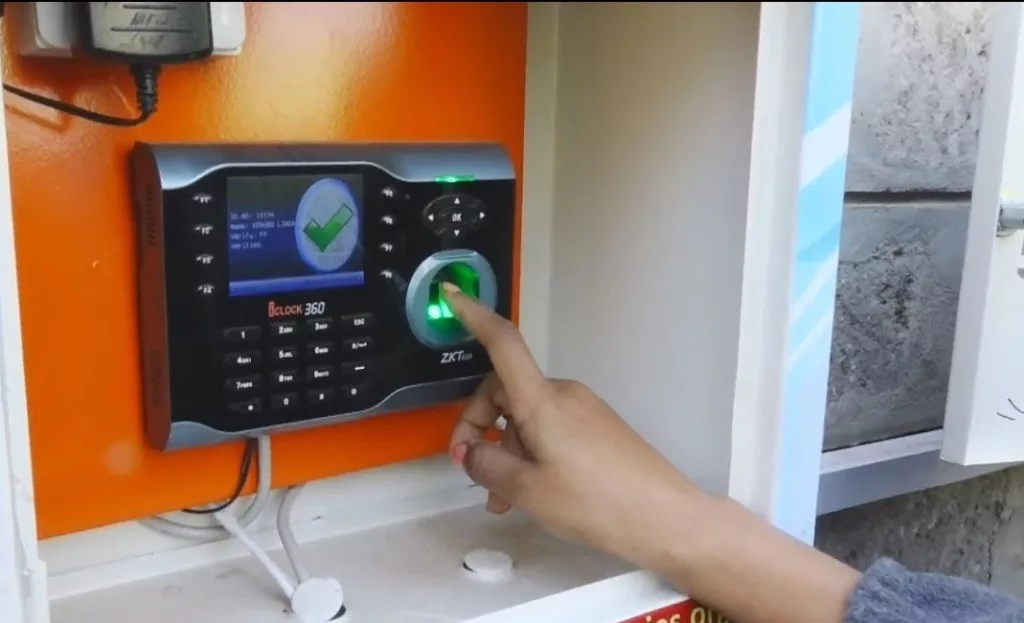CBSE may introduce biometric authentication in exams to prevent impersonation

CBSE may introduce biometric authentication in exams to prevent impersonation (Representational Image)
By: Pune Pulse
November 21, 2023
Pune: The Central Board of Secondary Education (CBSE) has announced plans to introduce biometric authentication in exams to prevent cheating, fraud and impersonation. This significant step will be implemented in approximately 1,500 examination centers nationwide, affecting nearly 17 lakh students.
As per the information provided, the Board administers a range of examinations nationwide, utilizing both offline/online modes such as pen and paper exams or computer-based tests (CBT) in selected cities throughout India. The provision of biometric authentication services, including digital fingerprint capturing, photo capturing and face matching with scanned photos of candidates, is required during both the examination and post-examination processes. These services are to be implemented in approximately 1,200 to 1,500 examination centers per exam across the country.
In order to maintain the integrity of examinations and prevent any fraudulent activities or impersonation, the board document emphasizes the need for measures to ensure smooth conduct. The CBSE document states that the board is eager to introduce a biometric authentication and attendance marking system. This system will enhance the examination process by implementing digital fingerprint capturing and face matching, including photo capturing, to verify the identity of candidates in real time. This will enable the monitoring of various activities of candidates at examination centers nationwide, making the process more robust.
The CBSE has stated that it will cover approximately 1,200 to 1,500 centers, 17 lakh candidates, and four exam dates. The estimated cost of the project is around Rs 5 crore.
What is the Process?
According to the document, the CBSE will share centre-wise data (including roll numbers, photos, names, exam dates/shifts, etc.) of all registered candidates with the chosen agency. This agency will then utilize this data for fingerprint/photo capturing and face matching. It will establish a robust mechanism to verify the candidates during and after the various stages of the process.
CBSE states that the installation of cutting-edge digital fingerprint or photo-capturing devices, as well as the deployment of skilled technical personnel, will be necessary at every examination center to facilitate the examination process.
CBSE has additionally indicated that there will be live attendance tracking. It has stated that the roll number on the candidate’s admit card, which is encoded in a QR code or barcode, should be scanned or read to automatically retrieve the candidate’s details from the CBSE’s application database. If the QR code or barcode on the admit card is absent or cannot be scanned, then the roll number along with the candidate’s information must be manually entered.
CBSE has stated that the process of capturing a candidate’s fingerprint/photo and conducting face matching will take place at the security gate before the commencement of the examination. The Board emphasizes that all these activities must be completed before the conclusion of the exam. Additionally, the entire database and application server will be located in two different seismic zones within India.
One site will serve as the data center (DC), while the other site will function as the disaster recovery (DR) center. To prevent duplication of candidates’ records, the agency should implement a deduplication algorithm across the database. Furthermore, the document specifies that face matching should be conducted between two images: one provided during online registration and the other captured on the day of the exam.
The agency will additionally conduct a physical verification of the candidate’s photo by comparing it with the application database provided by CBSE during the security gate entry. Once the verification process is completed, the agency will submit all the collected data to CBSE on the day of the examination. Furthermore, the agency will assign at least one fingerprint/photo capturing device and face-matching device for every 60 candidates during both the examination and post-examination stages, as per the schedule determined by CBSE.
According to the document, it is the responsibility of the agency to guarantee the functionality of all devices and the collection of fingerprints and photographs of every candidate who has participated in the examination at each center. The document emphasizes that the agency must uphold strict secrecy and confidentiality, refraining from disclosing any information regarding the assignment or examination to any external party or individual. Additionally, the CBSE has advised the chosen agency to conduct prior visits to all the centers to familiarize themselves with the available facilities.









